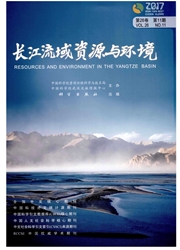

 中文摘要:
中文摘要:
研究目的:分析土地用途管制政策下农地城市流转的福利损失状况,研究农地保护政策的最优选择。研究方法:理论分析方法,模型分析方法。研究结果:中国土地用途管制政策(动态土地用途管制)优于静态土地用途管制、税收等政策,但仍然存在福利损失,不是最优的政策选择。研究结论:(1)土地用途管制易于产生政策规避行为和违法用地现象,同时政策制定存在困难;(2)农地保护政策的研究应考虑农地城市流转的动态变化因素;(3)地方政府进行农地流转决策需要考虑农地流转过程中非经济福利的损失。为实现农地城市流转福利优化,地方政府应在流转发生的同时,支出等同于当地非经济损失的资金进行弥补。
 英文摘要:
英文摘要:
The purpose of this study is to analyze the welfare loss of land use control and discuss the optimization of farmland preservation policy in China. Methods used include theoretical analysis and modeling analysis. The results indicated that the dynamic land use control in China was better than a static one and other policies, e.g., taxation, but it still caused the welfare loss. The paper concludes that 1 ) land use control causes the shrinking behavior of policy implementation, illegal land use and the difficulty in policy-making; 2) the research on farmland preservation should consider the dynamic factors in rural-urban conversion; 3) local government should take into account the non-economical cost of farmland conversion in the decision-making process. The paper concludes that the optimal policy is that local government pay for the non-economical cost of land conversion to compensate the welfare loss of society.
 同期刊论文项目
同期刊论文项目
 同项目期刊论文
同项目期刊论文
 期刊信息
期刊信息
